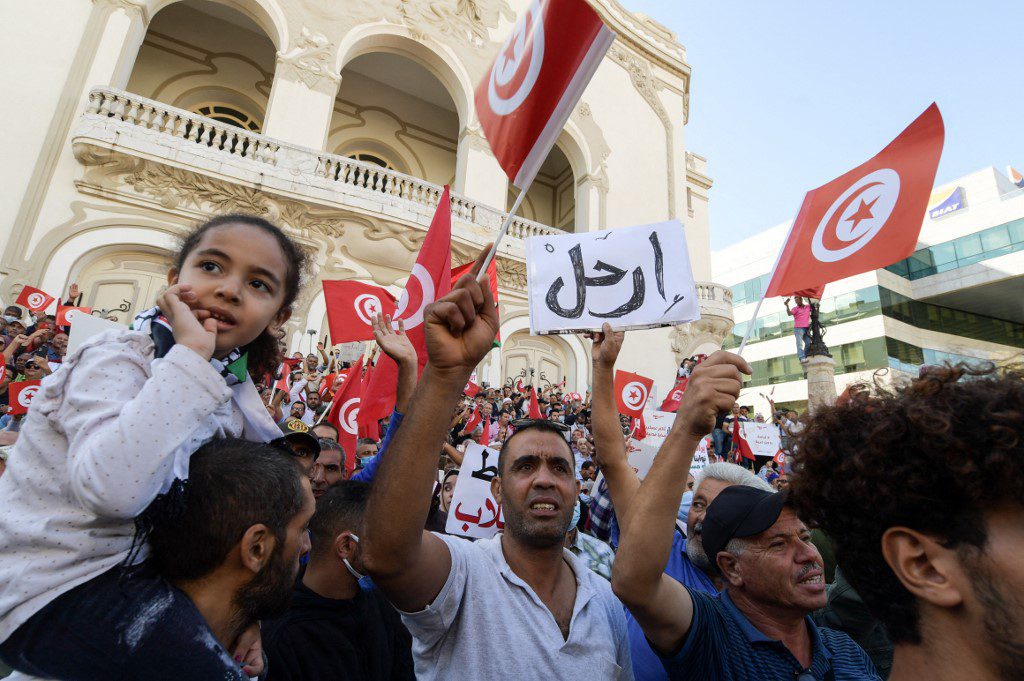
More than 5,000 people, according to observers, flocked to Avenue Bourguiba, to demonstrate at the call of various parties opposed to President Kais Saied, including the Islamist-inspired Ennahdha party. Saied on July 25 suspended the legislature, sacked the government and seized control of the judiciary, later moving to rule by decree. FETHI BELAID / AFP
Hakim Marzouki
In terms of the strength and weakness of memory, the Arabs can be categorized in the same class of elephants and fish. That is, into societies that cannot forget and others unable to remember.
Tunisians are classified among those who quickly forget the cruelty of their rulers and the injustice of their corrupt compatriots, just after listening to a gently-toned speech from yesterday’s tyrants.
In January 1984, Tunisians took to the streets scorning and threatening Habib Bourguiba’s regime in what is known as the Bread Riots, when the government lifted subsidies on pastry prices, a principal commodity of Tunisians’ daily food.
They blocked roads, burned stores, looted shops and paralyzed the country. And when Bourguiba came out on television and apologized with his famous phrase “We will go back to how we were,” Tunisians took to the streets with his pictures, kissing him and calling him to be the eternal president of the country.
Of course, Bourguiba sacrificed some of those who had advised him to lift subsidies on bread and other wheat products at the time. But he returned as the leader in the eyes of his people, who used to describe him with the worst qualities barely a minute before retracting his decision.
That mood swing has been frequent throughout Tunisia‘s modern political history since its independence in 1956. Tunisians kept chanting slogans of revenge against their tyrannical rulers and then turning their backs on the same slogans with the same enthusiasm, just because words changed before circumstances.
They supported Ben Ali’s coup against Bourguiba in 1987 and then turned against Ben Ali a few years later until they successfully overthrew him on Jan. 14, 2011.
Many of them elected Islamists during the troika rule, only because they were in exile and detention, then they returned to denounce their corruption and lament Ben Ali’s regime. Many of them found what they were looking for in the MP and leader of the Free Destourian Party, Abir Moussi, who represented a strange mixture between both Bourguiba and Ben Ali amid a sense of nostalgia, and nothing but nostalgia, not remembrance. But then again Tunisians yearn, they do not remember.
The capability to forget among Tunisians has many overlapping causes related to their emotional nature and the social structure that did not experience sectarian and/or religious divisions, as is the case in the Middle East. In addition, Tunisia did not witness a bloody dictatorship in its history, but rather a highly disciplined police regime with few transgressions, compared to its neighbours in the region.
Perhaps describing Tunisians as people with fish memory makes its citizens capable of holding very fewer grudges and able of overcoming the wounds of the past, unlike those with elephant memory.
DISCLAIMER
The opinions expressed in this publication are those of our bloggers. They do not purport to reflect the opinions or views of Fanack or its Board of Editors.


